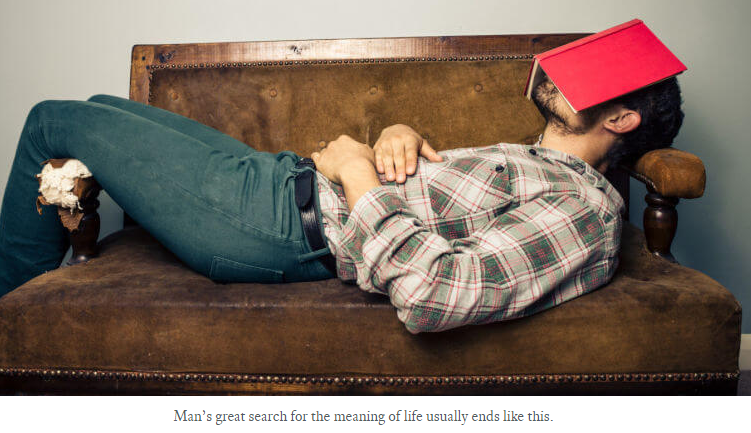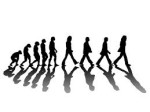Thanks to Mark Manson (The Subtle Art of Not Giving a F*ck) – NYT #1 bestselling author, prolific blogger, deep thinker and common-sense guy for sharing his take on life’s meaning and your unique purpose. Really special to have Mark musing here at DyingWords.
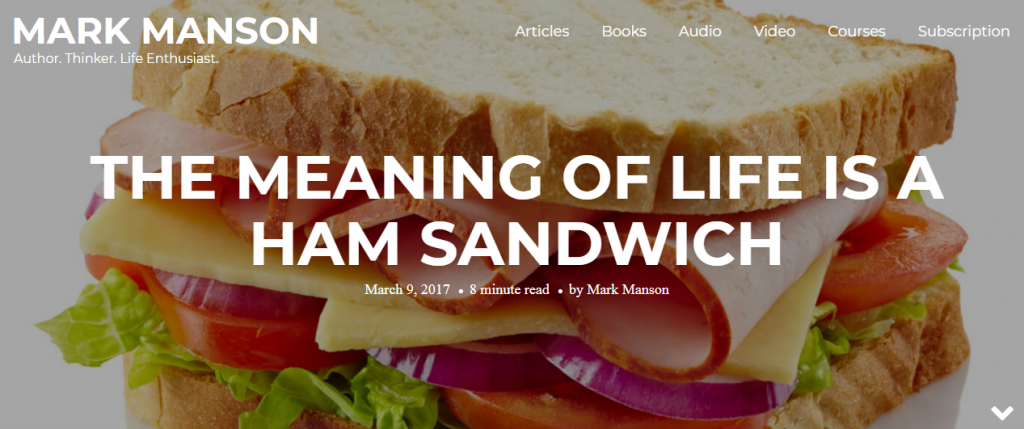 You know the question. It’s the ultimate question. The question you and I and everyone has laid awake at night thinking about. The question that brings equal parts wonder and terror to our feeble minds. Why are we here? What is the point of it all? What is the meaning of life?
You know the question. It’s the ultimate question. The question you and I and everyone has laid awake at night thinking about. The question that brings equal parts wonder and terror to our feeble minds. Why are we here? What is the point of it all? What is the meaning of life?
Well, fortunately, I figured it out while I was at the gym this morning. I’m pretty sure it’s a ham sandwich. And no, I’m not saying that just because I’m hungry. There’s an explanation here. I’m going to explain it, click-bait titles and all, in, oh, the next eight minutes or so.
First off, before we can even appropriately ask “What is the meaning of life?” we must first settle something more subtle and something more important. Namely, what is meaning?
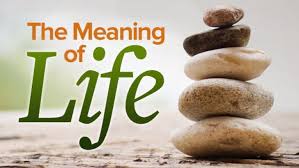 What is meaning? That may strike you as terribly navel-gazey and ultra-philosophical. And if that’s the case, I invite you to think about ham sandwiches for a moment, and just stick with me for a minute. Because it’s important.
What is meaning? That may strike you as terribly navel-gazey and ultra-philosophical. And if that’s the case, I invite you to think about ham sandwiches for a moment, and just stick with me for a minute. Because it’s important.
What does it mean for something to mean something? As humans, we have a constant need to attach meaning to everything that happens in our lives.
My mom hugs me—that must mean that she loves me. My boss complimented me—that must mean I do good work. It’s going to be sunny tomorrow—that must mean I can wear my super-cool SpongeBob tank top to school.
Meaning is the association that we draw between two experiences or events in our minds. X happens, then Y happens, so we assume that means X causes Y. Z happens, and we get really bummed out and feel awful, therefore we assume that Z sucks.
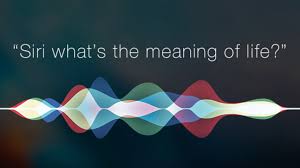 Our brains invent meaning the way dogs shit—they do it gleefully and not even realizing that they’re ruining the carpet. Our brains invent meaning as a way to explain all the crazy shit that is going on in the world around us. This is important, as it helps us predict and control our lives.
Our brains invent meaning the way dogs shit—they do it gleefully and not even realizing that they’re ruining the carpet. Our brains invent meaning as a way to explain all the crazy shit that is going on in the world around us. This is important, as it helps us predict and control our lives.
But let’s be real: meaning is an arbitrary mental construct. Fifty people can watch the exact same event and draw fifty different meanings from said event. That’s why there’s so much arguing in politics. That’s why eyewitnesses are so unreliable in court. That’s why your friends are sometimes the biggest assholes—because that meaning you just shared, to them, meant something completely different.
TYPES OF MEANING IN LIFE
Our brains slap together two different types of meaning:
Cause/Effect Meaning: You kick the ball, the ball moves. You tell your friend his hair is ugly, your friend slaps you in the face. You do X, and with reliable certainty, Y will result.
We all need Cause/Effect meaning to survive. It helps us predict the future and learn from the past. Cause/Effect meaning primarily involves the logical parts of our brain. Science, for instance, is the constant search of more and more Cause/Effect Meaning.
Better/Worse Meaning: Eating is better than starving. Making money is better than being broke. Sharing is better than stealing. Better/Worse meaning has to do with the nature of our values—what we perceive to be most important and useful in our lives. Better/Worse meaning relies mostly on the emotional parts of our brains. Generally what makes us feel good is what we immediately assume to be “good” or “better.”
Both forms of meaning evolved in our brains to help us survive. For thousands of years, humans needed to remember where certain food could be found, how various animals would respond when hunted, how weather patterns change and how to read the terrain. They also needed to know what would gain them acceptance within their tribe, what would curry favor from friends and earn approval from that sexy guy/gal in the loin cloth over yonder.
 So in that sense, meaning is nature’s tool for motivation. It’s how evolution made sure we got shit done. Meaning drives all of our actions. When there is great meaning attached to something, like our child is sick and starving, we will go to insane lengths to make things right. People will often even go as far as to give up their lives for some grand sense of meaning (religion: every war ever). Meaning is that effective at moving people.
So in that sense, meaning is nature’s tool for motivation. It’s how evolution made sure we got shit done. Meaning drives all of our actions. When there is great meaning attached to something, like our child is sick and starving, we will go to insane lengths to make things right. People will often even go as far as to give up their lives for some grand sense of meaning (religion: every war ever). Meaning is that effective at moving people.
Conversely, when we feel we lack meaning in our lives, when shit just doesn’t seem to matter, when there’s no clarity on how or why things happen to us, we do nothing. We sit on the couch and twiddle our thumbs and watch lame reruns while complaining on the internet about lame reruns.
But here’s the kicker (and I swear I’m going to get to the ham sandwich): Meaning is a resource that we must cultivate in our lives.
Meaning is not something that exists outside of ourselves. It is not some cosmic universal truth waiting to be discovered. It is not some grand ‘eureka’ moment that will change our lives forever.
Meaning requires action. Meaning is something that we must continually find and nurture. Consistently.
 Meaning is like the water of our psychological health. Without it, our hearts and minds will shrivel and die. And like water, meaning flows through us—what is important today is not what was important years ago; and what is important tomorrow will not be the same as what is important today. Meaning must be sought out and replenished frequently.
Meaning is like the water of our psychological health. Without it, our hearts and minds will shrivel and die. And like water, meaning flows through us—what is important today is not what was important years ago; and what is important tomorrow will not be the same as what is important today. Meaning must be sought out and replenished frequently.
HOW TO FIND MEANING IN YOUR LIFE
In a very real sense, the meaning of life is therefore to create meaning. So how does one create meaning? Two ways:
Solve Problems: The bigger the problem, the more meaning one will feel. The more work you do towards that problem, also the more meaning you will feel. Solving problems basically means finding ways to make the world a slightly better place. It can be as simple as fixing up your aging mother’s dilapidated house. Or, it’s as complex as working on the new great breakthrough in physics.
The point here is not to be picky. It’s easy, when we start thinking of how insignificant we are on a cosmic scale of the universe, to start thinking there’s no point in doing anything unless we’re going to save the world or something. This is just a distraction. There are tons of small, everyday problems going on around you that need your attention. Start giving it.
Help Others: This is the biggie. As humans, we’re wired to thrive on our relationships. Studies show that our overall well-being is deeply tied to the quality of our relationships, and the best way to build healthy relationships is through helping others. In fact, some studies have even found that giving stuff away makes us happier than giving stuff to ourselves. Go figure.
As such, it seems to be a “hack” in our brains that helping out other people gives us a greater sense of meaning and purpose. Just the fact you can say to yourself, “If I died, then someone is better off because I lived,” creates that sense of meaning that can propel you forward.
THE TRAP OF SETTING GOALS
A lot of people find meaning through setting goals for themselves. They want the corner office, the big car, the fancy-pants shoes. It gives them a reason to wake up in the morning, a reason to bust their ass at work. It gives them something that makes them feel important and something to look forward to every day.
But, goals are a double-edged sword. You have to be careful. Goals are good tools for building motivation. The problem is that, by themselves, they are arbitrary and empty. Unless there’s a why behind the goal full of meaning, the goal itself will provide little long-term happiness or satisfaction.
Ever see star athletes flounder after retirement? Or a guy who finally made his millions become deeply miserable because he doesn’t know what else to do with his life?
Goals are dangerous because the meaning they provide when you’re working towards them is the meaning that is taken away once you achieve them. This is why all the superficial stuff like make a billion dollars, or own a Rolls Royce, or get your face plastered on the cover of a magazine all lead to a type of happiness that is shallow and short-lived—because the meaning is shallow and short-lived. There has to be a deeper reason for your goals. Otherwise, the goals themselves will be empty and worthless in the long-run.
Notice that it’s the athletes who aspire to be the best at their sport for some greater reason—to build a charity, to start a business, to transition into another career—who handle retirement the best. Notice it’s the millionaires who spent their life working towards a deeper cause that remain content once all of their goals are checked off the checklist.
But some goals don’t even have to be big and sexy.
Take a ham sandwich. I sat down to write this article hungry. That’s a problem in my life. And I promised myself I’d pump out this draft before going and making myself a sandwich. That gave this hour some extra meaning.
 And you know what? Maybe my wife’s hungry and I can make her one too. You know, make the world a better place and all that shit while I’m at it.
And you know what? Maybe my wife’s hungry and I can make her one too. You know, make the world a better place and all that shit while I’m at it.
So what’s the meaning of life? Well, for me, right now, it’s a ham sandwich. What will yours be?
* * *
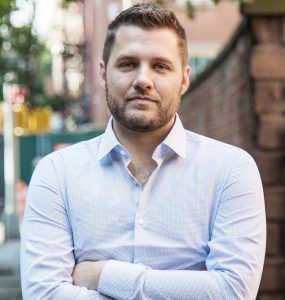 Thanks so much to Mark Manson for his witty yet wise insight into all things life. Mark is a writer, blogger and thinker who set the current trend of questioning conventional self-help gurus. His great book The Subtle Art of Not Giving a F*ck sold over a million copies and still burns the charts. That’s because Mark connected with people looking for no-bullshit truth.
Thanks so much to Mark Manson for his witty yet wise insight into all things life. Mark is a writer, blogger and thinker who set the current trend of questioning conventional self-help gurus. His great book The Subtle Art of Not Giving a F*ck sold over a million copies and still burns the charts. That’s because Mark connected with people looking for no-bullshit truth.
Mark Manson reads a lot, writes a lot and shares a lot. Born in Austin, Texas, Mark educated in Boston and now lives in NYC with his Brazilian wife. Mark’s work makes himself think about solving problems, helping others, cause & effect and better or worse. He’s a thought leader and non-apologist for sticking-it to conventional self-help opportunists. Here’s Mark Manson’s best books.
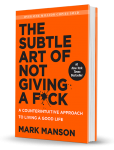 The self-help book for people who hate self-help books. The Subtle Art of Not Giving a F*ck is all about self-improvement not through avoiding problems or always being happy, but rather through engaging and improving upon problems and learning to accept the occasional unhappiness. It’s a radical departure from anything else you’ve ever read, and that’s what makes it so powerful.
The self-help book for people who hate self-help books. The Subtle Art of Not Giving a F*ck is all about self-improvement not through avoiding problems or always being happy, but rather through engaging and improving upon problems and learning to accept the occasional unhappiness. It’s a radical departure from anything else you’ve ever read, and that’s what makes it so powerful.
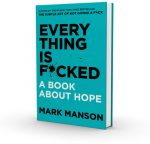 In Everything Is F*cked, Manson turns his gaze from the inevitable flaws within each individual self to the endless calamities taking place in the world around us. Drawing on mountains of psychological research, as well as the timeless wisdom of philosophers such as Plato and Nietzsche, he dissects religion and politics and the uncomfortable ways they have come to resemble one another. He looks at our relationships with money, entertainment and the internet, and how too much of a good thing can psychologically eat us alive. He openly defies our definitions of faith, happiness, freedom, and even of hope itself.
In Everything Is F*cked, Manson turns his gaze from the inevitable flaws within each individual self to the endless calamities taking place in the world around us. Drawing on mountains of psychological research, as well as the timeless wisdom of philosophers such as Plato and Nietzsche, he dissects religion and politics and the uncomfortable ways they have come to resemble one another. He looks at our relationships with money, entertainment and the internet, and how too much of a good thing can psychologically eat us alive. He openly defies our definitions of faith, happiness, freedom, and even of hope itself.
 Models is a book on becoming an attractive man that’s based not on tricks, tactics, games or techniques, but on self-development. Its truths are backed by decades of psychological research. Its focus is on the emotional process of seduction rather than agonizing over logical steps. Its goal is to create powerful connections with women instead of trying to impress them.
Models is a book on becoming an attractive man that’s based not on tricks, tactics, games or techniques, but on self-development. Its truths are backed by decades of psychological research. Its focus is on the emotional process of seduction rather than agonizing over logical steps. Its goal is to create powerful connections with women instead of trying to impress them.
Models is the most mature and honest guide on how a man can attract women without faking behavior, without lying and without emulating others. Stop acting like an attractive man and BE an attractive man.


